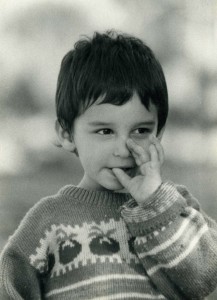
What play, a divine play. I thought I existed. I thought you existed. And I tried to find oneness between myself and you. And then after that I went further where there’s no more oneness between you and I. There was only existence. And then you come back to complete the cycle. And completing the cycle, you sit back and you laugh. Lovely play. That is what everyone is involved in. This play of life. That is what is meant by letting go.
So why go through all that, tell me, when there’s a direct road to know the play even before the play is played. Even before the play is written you know it. For who is the writer of the play? Who is the director? Who is the producer? Who are the actors? Hm? So to know it even before the cast is trained, even before the script writer has written the script, even before the producer has put it all together and financed it, and even before the director has directed it or the set decorator has created the atmosphere on the stage, you know it. What do you know? What have you known? And what is there to be known?
One thing only. One thing only is to be known: I am Divine. Unconditionally Divine. And if I am unconditionally Divine, why do I need to suffer the pains and the pangs and all the problems of the rehearsals? The director’s direction and the producer’s production and the actor’s acting? It is all there in those three words, «I am Divine.» Oh, living gods on earth, why be veiled by these sorrows where the entire theme of your life is made of sorrows. And yet, that very theme, that tragedy or comedy is the basis of the plays that forms the play. So simple. So damn simple.
So you’re involved in the tragedy or the comedy of life, forgetting the main principle of life, that «I am Divine.» You’re working either as the director of the play with all your problems, you’re working as a set decorator with all the problems, you’re working as the actor or the actress with all those problems, you’re working as the lighting man with all those problems, the proper light to be switched on at the proper time combining this light with that light and focusing it on a certain situation of the play. You’re involved in that. You’re involved in the play, and identifying yourself with that which you are doing. You’re identifying yourself as the director or the direction; you’re identifying yourself as the actor or the action or acting; you’re identifying yourself as a producer with the production when you are neither of that, none of that.
Why the identification as the actor or the producer or the director? Why the identification is because you are adding importance to the role you are playing. There it comes again: play, play, play. You’re identifying yourself with the role that you are playing but not with what you really are. Then lies the secret of joy. There lies the key to the joy. Otherwise you’re identifying yourself all the time.
And what does this identification mean? «I!» That’s all it means! «I». Identification means «I.» Who is the «I» that you are identifying yourself with? You’re identifying yourself with the role that you are playing, and not your real self. So when you realize the real self, I‑dent… I will not dent my real self anymore. I am I. I am Divine. I am existence. Nothing else exists but the real I. So the role that is played is not important. It is a moment’s duration. So momentary, molehills being made into mountains. Creating problems because of denting the «I»‑‑ that’s what you’re afraid of. «I,» the ego self, the ego I, you’re afraid of it being dented. And therefore you identify. Do not identify with that «I», the «I» of the ego. Do not identify, but defy, and be yourself, your real self, the Divine self. Every moment of the day. Because you are that. Thou art That. Tat Twam Asi. Brahmasmi. I am That, thou art That. All is That. Everything is Divine. All is Divine.

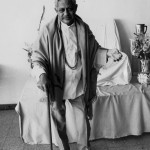
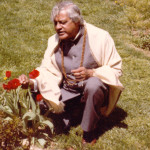
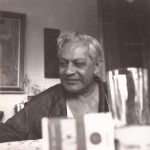
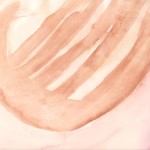

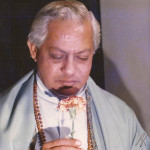
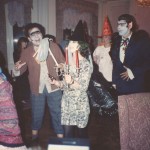
Speak Your Mind